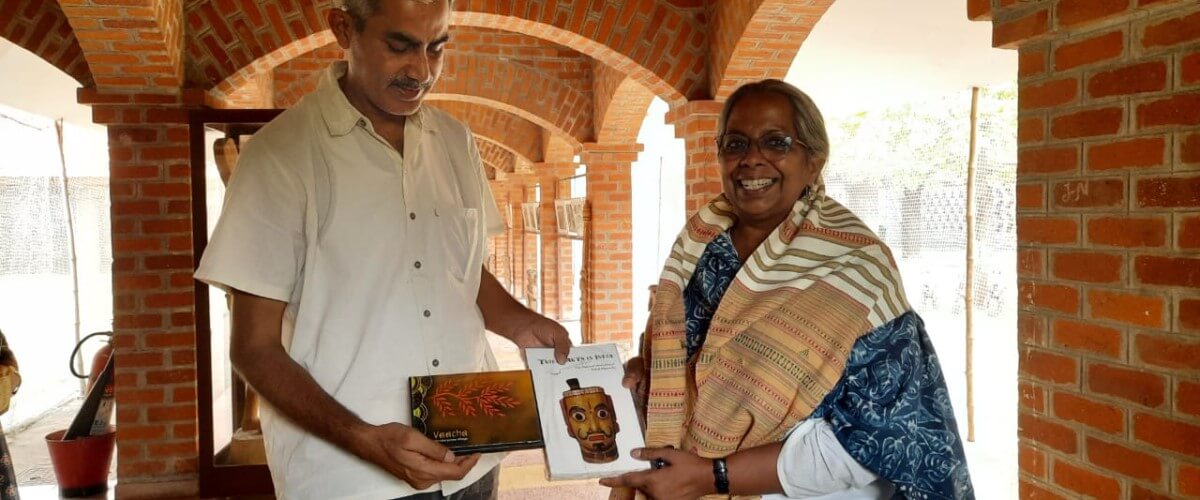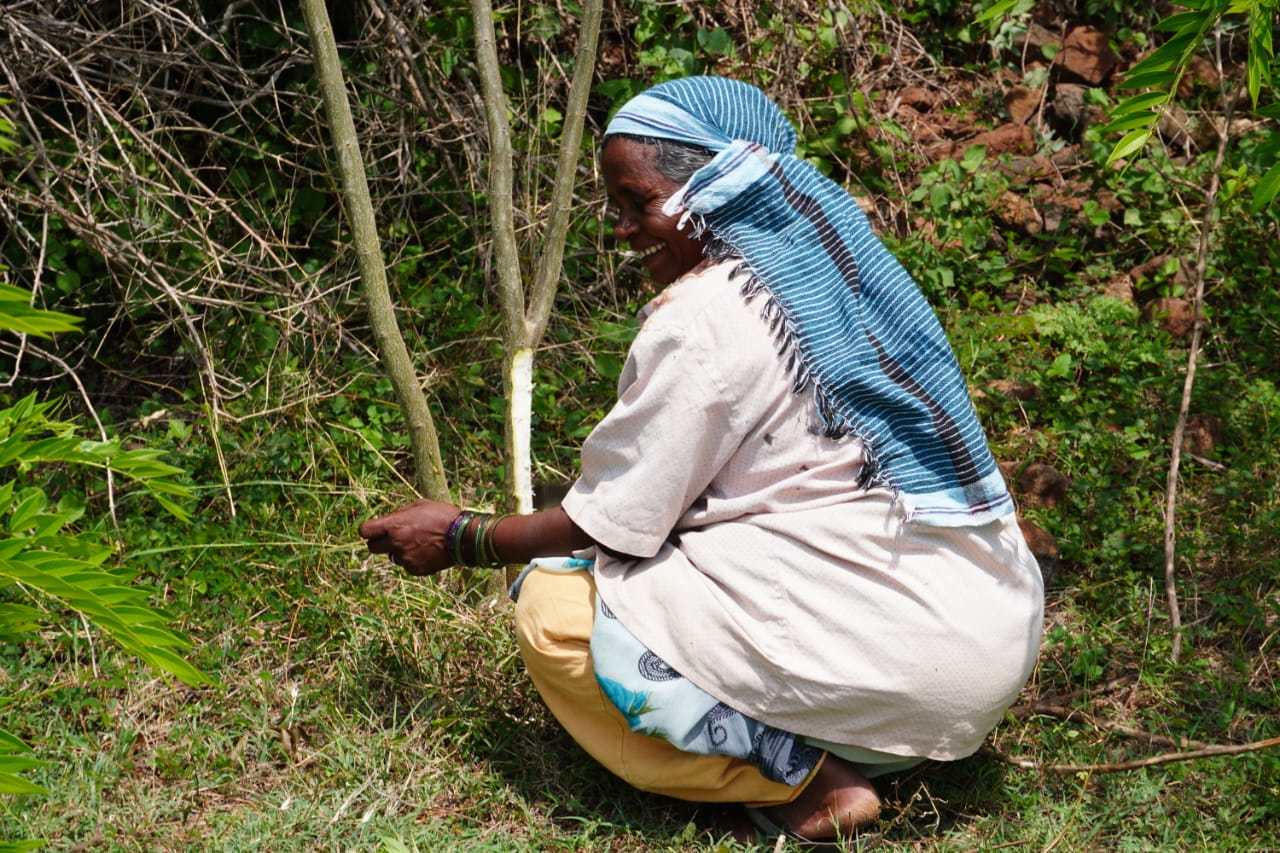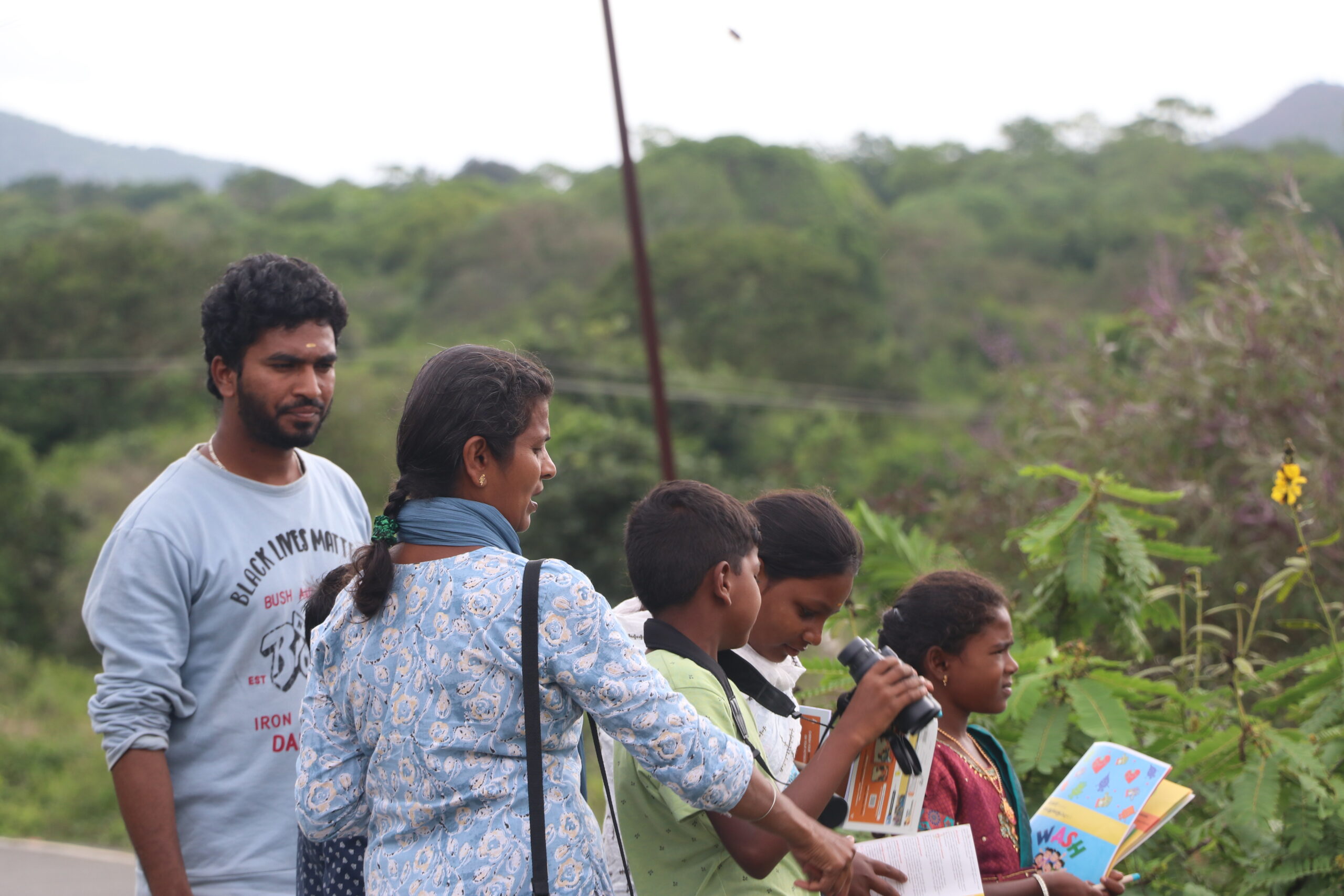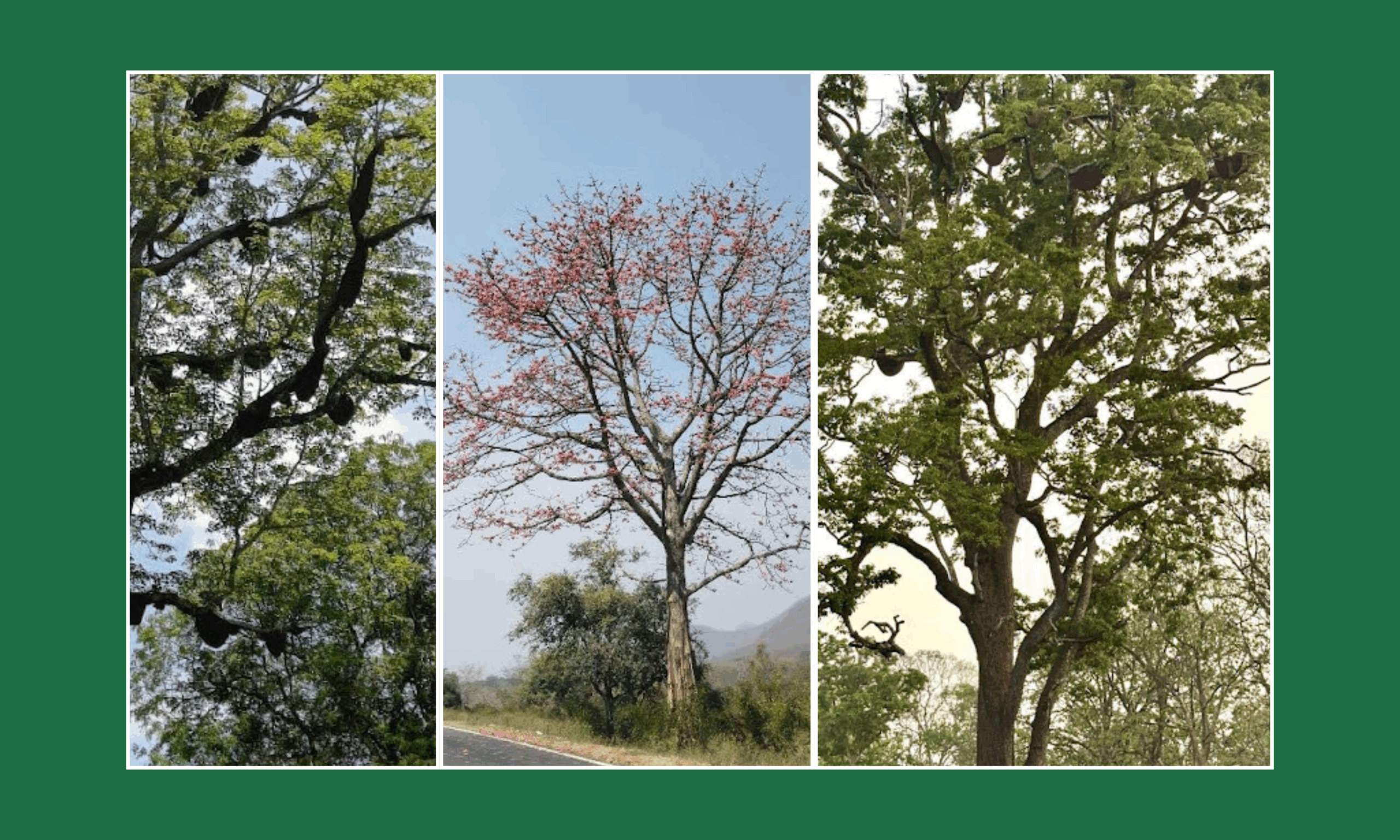April 23, 2023
By the People & Nature Collectives programme
Some of the team members of People and Nature Collectives programme had an opportunity to visit Bhasha Institute, in Tejgadh (Chhota Udepur district, Gujarat) from April 18 to 23 this year. Bhasha Trust was founded in 1996 for the study, documentation and conservation of marginal languages. It was founded by writer and cultural activist G.N. Devy, who helmed the 50-volume series titled ‘People’s Linguistic Survey of India’- the first of its kind to document 780 scheduled and non-scheduled languages in India.
Visiting team from PNC team included community researchers from Toda, Irula, Kattunaickan, Malamuthan and Kurchiya communities, along with other staff who have been working on projects related to indigenous self-profiling, community ethnographies, oral and life histories, community museum and documentation projects, etc. This was designed as a learning visit to gather insights and lessons from the important work done at the Institute.

Bhasha Institute and Adivasy Academy works with many de-notified tribes (DNT) and local communities of Chhota Udepur, including Rathwa, Vasavi, Dhanak, Naik, Bhil, etc. The several exciting initiatives that the team got to learn from include –
- Adivasi Academy and Vasantashala which runs a residential school programme for children of migrant labour. Education initiatives are taken up in their local languages and holistic and multilingual education for small marginalised groups is the primary agenda for this initiative. Children at the school have the freedom to speak in any language both, inside and outside the classroom. Along with the government’s textbook curriculum, the school teachers have added local songs, stories, arts and craft, ecology etc. to make the curriculum content appealing for the children.
- Vaacha – Museum of Voice: Vaacha functions more as a forum and a platform for expression of Adivasi creativity. It offers artistic space for Adivasis interested in documenting social practices, and creating dynamic displays of Adivasi expressions, both artistic and cultural, in the form of objects, artefacts, performances and digitised multimedia images. Vaacha is a ‘laboratory’ for contemporary ethnic, anthropological and artistic studies carried out from the perspective of Adivasis themselves and has evolved as the largest resource centre of Adivasi Culture in India.
- Bhasha Van: An outdoor extension of the Vaacha Museum is Bhasha Van, literally meaning ‘a forest of languages’ and created to provide a real-time experience of India’s linguistic diversity. The idea of Bhasha Van emerged from The People’s Linguistic Survey of India.
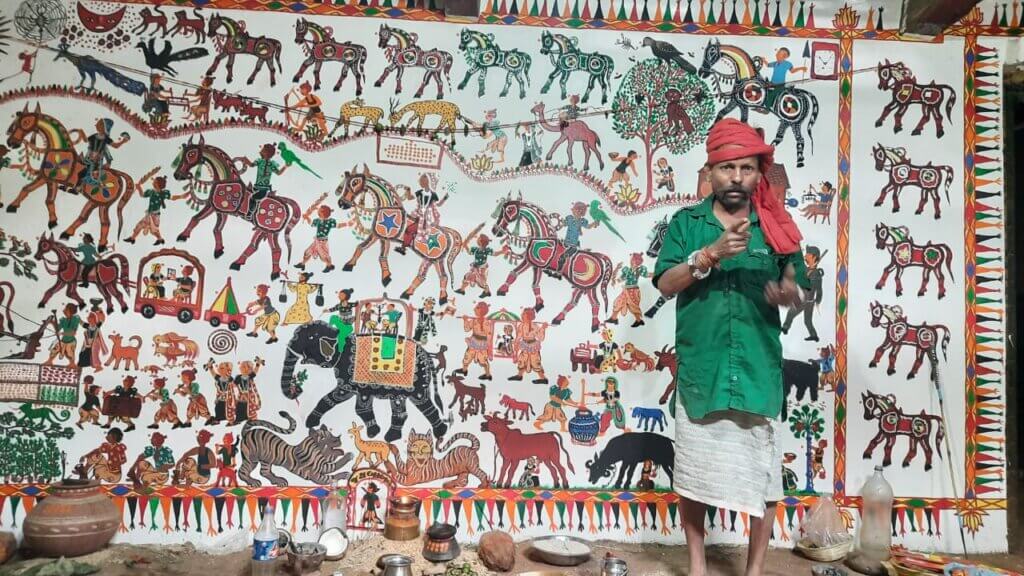
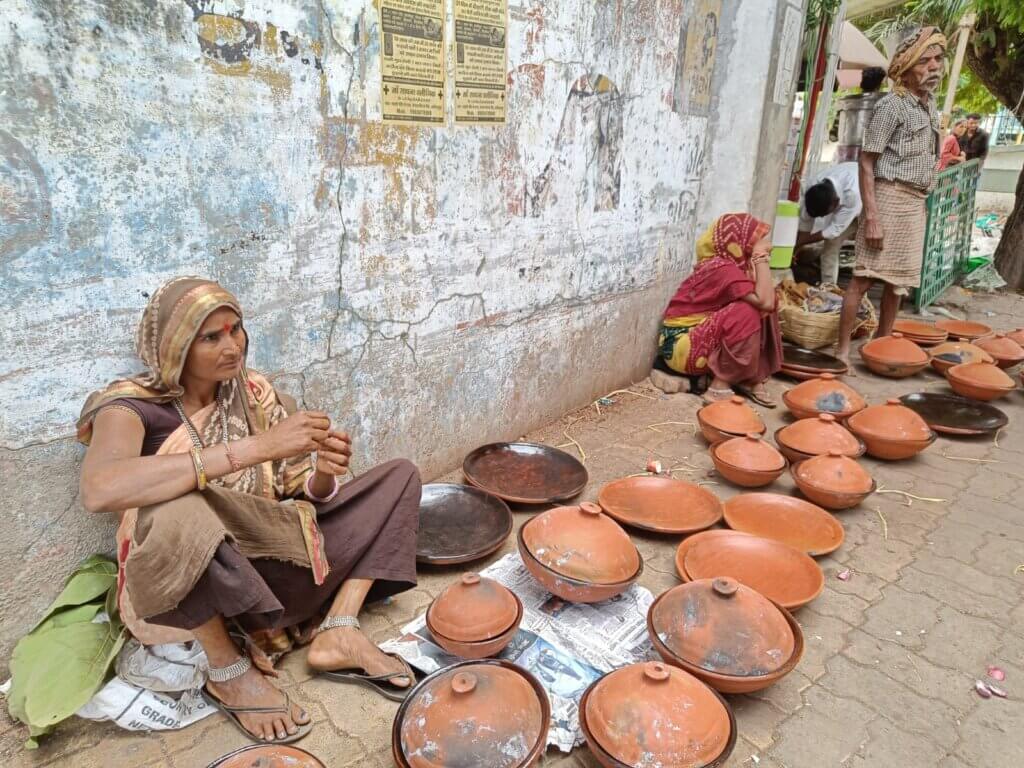
The really enthusiastic team at Bhasha Institute took the team to several field visits to engage with artisans, craftsmen and community members who have been promoting textile revival, art forms such as Pithora paintings, etc. The team was also exposed to the different methods they use to document community ethnographies, digital chronicling of cultural traditions, and promoting art and craft revival in the region
The body of work built up through institutions such as these has been achieved with effective participation from Adivasi communities. “The institute was visualised as a combination of a university, a research centre, an activist-centre, a laboratory for experiments in development and a cultural expression forum, addressing all aspects of Adivasi culture, history, society, rights and development. The institution conceptualised by the Bhasha Trust has evolved as a people’s institution, and is given the name Adivasi Academy by the community of scholars and activists associated with it.”
The team has had a brilliant experience in discussing the impact of such work within their contexts and the visit induced lively discussions on ongoing and future directions of the work of the programme.

